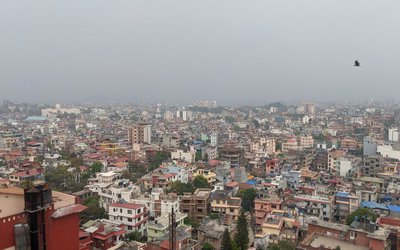Bihar, the poorest state in India, where social inequality, poverty, corruption, crime, colonial political scandals and all imaginable negative factors had taken tolls since ages, has seen a dramatic turnaround in the state affairs over the last six years. From being on the verge of a fiasco, the condition of the state has been reinvigorated. Bihar now is begging headlines for all the right reasons.
“Between 1990-2005, Bihar was in a serious hole, caste-based political scandals ruled the state, under Lalu Prasad Yadav things got worse, but in the last 6 years, things have changed,” said Blair Glencorse, specialist, Institute for State Effectiveness, who is doing a study on the transformation of Bihar.
Causes for development
The key reason for the transformation of Bihar has been the leadership. Although the preceding chief minister, Lalu Prasad Yadav, did not set the bars too high, the works done by Nitish is laudable. When Nitish Kumar was elected the Chief Minister of Bihar in 2005, the state was in an insurmountable condition, but, Nitish changed the fortune of Bihar.
The government made panoptic investments in infrastructure, made education top priority and raised education budget to 25%. Government improved health facilities, primary cares and provided other basic facilities that people in Bihar never experienced before. Women are provided various rights and nearly half of the Bihar decision making personnel are now women.
Nitish-led government was able to spend 93% of their budget in key areas. “There is a catalytic effect between spending money and development,” said Blair. Bihar today has one the highest economic growth rates in India. Numbers are slowly turning in favor of Bihar.
During the last 6 years, the security of the state has been upgraded. Nitish publicly supported the police after they made high-profile arrests of criminals including MPs and MLAs from his own party. He put thousands of criminals in jail and offered jobs to criminals involved in less serious crimes and brought them into public service, offering more money than they were earning. He hired ex-soldiers, introduced fast track courts and improved the overall security of the state.
Nitish diminished the trend of over-centralized state powers, and decentralized powers to working officials. He updated archaic rules and established cabinet meetings as a weekly event. He ended the widespread patronage system and picked bureaucrats and public servants for their competence. He gave emphasis to anti-corruption and made systems automated and simplified to reduce corruption.
Changing attitude
People have started feeling the changes. Residents of Bihar who were working away from the state are slowly returning to their native land. People once filled with pessimism and hopelessness are now living with the belief that optimism in life is possible.
Six years back, due to lack of security, people in the rural areas barely used to go out after sunset and people living in the city areas weren’t able to enjoy extravagance like luxurious cars as it would have attracted the unwanted attention of the extortion groups. But today the condition has changed. “People in the rural areas feel technically safe and don’t hesitate to go out after sunset and people in the city areas are enjoying luxuries,” said Blair.
Although the achievements of Bihar in the last six years are remarkable, there are still loads of works left to do. “Land reform is a key issue and is a too difficult issue based on current dynamics of state,” said Blair.
Water management is a key challenge since 38 districts of Bihar were flooded recently and the 2008 flood was one of the most disastrous floods in the history of Bihar. Bihar hasn’t created any new source of energy for 25 years and still relies heavily on coal based energy. “Deep rooted energy scarcity poses challenges in growth,” Blair said.
There are still no major industries in Bihar and around 80-85% population of Bihar is dependent on agriculture. Although Bihar has amazingly fertile land, a state cannot develop solely on agriculture. The population of impoverished people is still very high.
Corruption might have gone down compared to the past but still it is not fully abolished. “It’s not that Bihar has no corruption, crime or other issues, but those have gone down dramatically and people are feeling the impact,” said Blair. But overall Bihar is transforming into a better place than it was a few years back.
Nepal benefits and lessons
Bihar shares an open border with Nepal. “Transformation of Bihar has opened new opportunities for Nepal and Nepal should not delay in creating economic symbiosis with Bihar,” Blair said. The political leaders of Nepal need to learn from Nitish. People in Bihar have trust in their leader and they fully believe in his commitments and his words, same cannot be said about the political leaders in Nepal. Blair advised Nepali government to enhance their public image by gaining trust of the people and an increased government capacity to boost public spending.
Nepal and Bihar can work together in hydropower projects as both the places have energy deficiency, said Blair. “Nepal can capitalize on around 100 million population of Bihar by taking the advantage of open border and due to the current transformation of Bihar,” he added.
- TANAHU HYDROPOWER PROEJCT: A Significant Achievement
- Apr 15, 2024
- AMBASSADOR HANAN GODAR: Sharing Pain With A Nepali Family
- Mar 30, 2024
- VISIT OF KfW AND EIB TO NEPAL : Mission Matters
- Mar 25, 2024
- NEPAL BRITAIN SOCIETY: Pratima Pande's Leadership
- Mar 24, 2024
- NEPAL ARMY DAY: Time To Recall Glory
- Mar 15, 2024
















